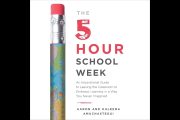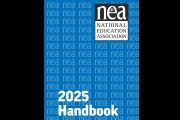If you want to know why some teachers fear how virtual learning allows parents to witness their instruction, you don’t have to look further than an “English” lesson in Tennessee. In fact, one outraged father in the Metro Nashville Public School District is now pulling his seven-year-old daughter out of school because she was being taught that, as he put it, “white people are bad, mean & racist against African-Americans & Mexicans.”
The father wasn’t exaggerating, either, as his series of tweets below evidences.
She has been and will always be taught that everyone is equal.
She will not be ashamed of her skin color.
— GrantB911 (@GrantB911) August 14, 2020
The white kids told the Mexican girl to “Go back to the Mexican school!” pic.twitter.com/muMQnOzM2D
— GrantB911 (@GrantB911) August 14, 2020
If you can’t read the text in the upper left-hand image, know that it reads:
“Sylvia had on her black shoes. They were shiny-new. Her hair was perfectly parted in two long trenzas. It was her first day at Westminster school. The halls were crowded with students. She was looking for her locker when a young white boy pointed at her and yelled, ‘Go back to the Mexican school! You don’t belong here!’”
Interestingly, Twitter hides the above school lesson image and the two below, instead presenting the warning, “The following media includes potentially sensitive content” and requiring you to click “View” to see them. So, ironically, while the Tennessee parents have to register approval to witness the images themselves on Twitter, their approval was never sought before their preteen children could view them in school.
The last two lesson images posted by the father, T. Grant Benson, are:
The Mexican kids were sent away and forced to sit in the dirt with flies around them and an electric fence that shocked them because white people are bad.
This is NOT a civil rights lesson.
This is self-hate & fake white privilege. pic.twitter.com/fPU24odazO
— GrantB911 (@GrantB911) August 14, 2020
— GrantB911 (@GrantB911) August 14, 2020
Unfortunately, the above isn’t uncommon in today’s schools, especially the government variety, as I pointed out in my 2018 essay “Craziness in Kids’ Classes.” Consider this excerpt, a quotation from the Weekly Standard:
The Edina [Minnesota] school district’s All for All plan mandated that henceforth “all teaching and learning experiences” would be viewed through the “lens of racial equity,” and that only “racially conscious” teachers and administrators should be hired. District leaders assured parents this would reduce Edina’s racial achievement gap, which they attributed to “barriers rooted in racial constructs and cultural misunderstandings.”
As a result, the school system’s obsession with “white privilege” now begins in kindergarten. At Edina’s Highlands Elementary School, for example, K-2 students participate in the Melanin Project. The children trace their hands, color them to reflect their skin tone, and place the cut-outs on a poster reading, “Stop thinking your skin color is better than anyone elses [sic]! — Everyone is special!”
I also related that one “teacher’s students at Rockingham Middle School in North Carolina last year [2017] were expected to issue [an apology] — standing in front of the class — for being white and Christian and having the ‘privilege’ that supposedly bestows.”
Then there’s “Verenice Gutierrez, principal of Harvey Scott K-8 School in Portland, Oregon, [who] warned in 2012 that offering an immigrant student a peanut butter and jelly sandwich could be ‘racist.’”
But I recommend you read the entire essay — it’s a real eye-opener.
It also well illustrates why “teachers in Tennessee’s Rutherford County School District (that’s Murfreesboro, which has a huge Sunni Islam population), are insisting that parents sign an agreement that, with their students doing distance learning from home, they will not monitor their children’s classes,” related commentator Andrea Widburg.
“When challenged, the school district claimed that this rule was to protect students’ academic privacy,” Widburg continued, “but we already know that the real purpose in public schools around the country is so that teachers can preach leftism.”
Yet this “type of debate is not just happening in Tennessee,” PJ Media’s Stacey Lennox writes. She continues:
A founding teacher at the Science Leadership Academy in Philadelphia also took to Twitter to express concern over parent observation of virtual classes. His laments about parents, especially conservative parents, had been retweeted over 1,000 times before he locked his account. Retweeting means other people were sharing his concerns with their own followers.
Matthew Kay put this up for other teachers to respond to:
“So, this fall, virtual class discussions will have many potential spectators — parents, siblings, etc. — in the same room. We’ll never be quite sure who is overhearing the discourse. What does this do for our equity/inclusion work?”
If you need clarity of what equity and inclusion work means, you can see the pictures in the previous tweets. Matthew concluded his thread with:
“While conversations about race are in my wheelhouse, and remain a concern in this no-walls environment — I am most intrigued by the damage that ‘helicopter/snowplow’ parents can do in honest conversations about gender/sexuality,” he added. “And while ‘conservative’ parents are my chief concern — I know that the damage can come from the left too. If we are engaged in the messy work of destabilizing a kids [sic] racism or homophobia or transphobia — how much do we want their classmates’ parents piling on?”
Unfortunately, this also is nothing new. For example, school activists already recommended back in the ’90s dealing with indoctrination opposition by keeping parents in the dark and moving forward “independently.” As Imani Matthews, a teacher at the private Riverdale Country School in New York, put it circa 1998, “There isn’t a loving presenter of the other side.”
If some guy wanted to take your child somewhere, behind closed doors, but didn’t want you to know what he’d be doing with your kid, would you consent? Well, this is essentially the situation with many of today’s public school teachers, who, though also sometimes committing sexual abuse (click here), specialize in mind molestation — and have millions of victims.
So, ironically, Americans have been complaining about schools being closed due to something posing virtually no risk to a healthy child, COVID-19. But the real threat appears when public schools and even some private schools (they are not all the same) are in session. It’s then that children are infected with a moral and spiritual disease that can remain symptomatic for life and doesn’t just attack the body, but rots the soul.
Photo: TethysImagingLLC/iStock/Getty Images Plus
Selwyn Duke (@SelwynDuke) has written for The New American for more than a decade. He has also written for The Hill, Observer, The American Conservative, WorldNetDaily, American Thinker, and many other print and online publications. In addition, he has contributed to college textbooks published by Gale-Cengage Learning, has appeared on television, and is a frequent guest on radio.




